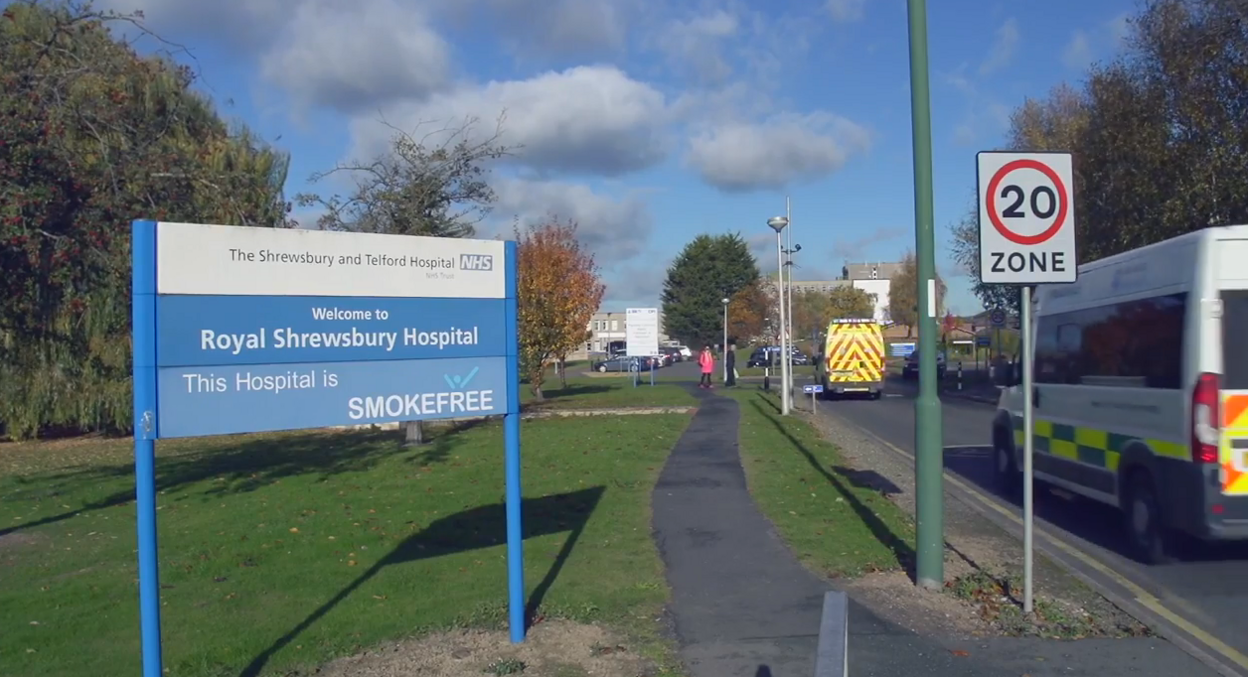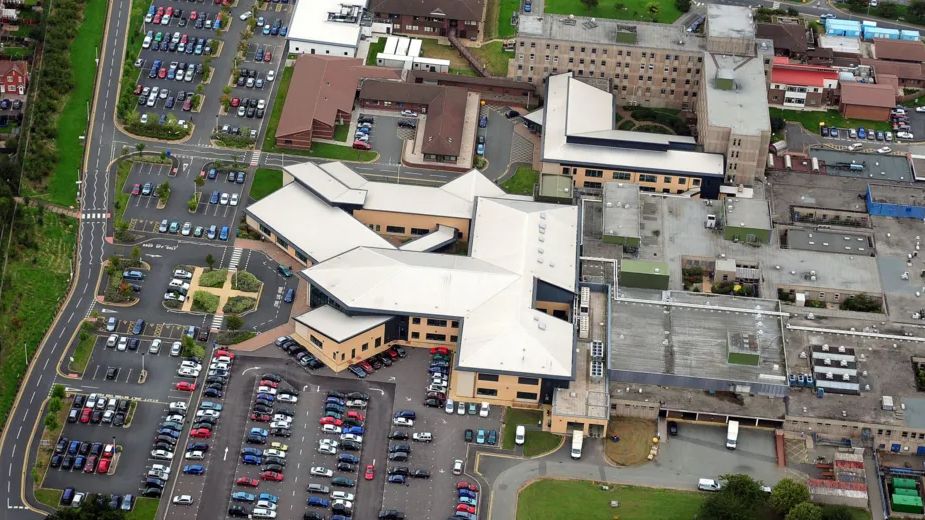A&Es make progress but waits are too long - report

A documentary left staff feeling "sad and broken", the hospital board heard
- Published
Progress has been made in Shropshire's under-pressure emergency departments, but waiting times are still "longer than acceptable", health bosses have heard.
Shrewsbury and Telford Hospital NHS drew up a plan to address shortcomings exposed by a Channel 4 documentary which showed undercover footage of patients facing long waits and being left in corridors at the Royal Shrewsbury Hospital's A&E.
A report to NHS Shropshire Telford and Wrekin's Integrated Care Board said unconventional care areas such as corridors had been "actively closed" and used less often.
But the report said the number of patients remaining in A&E longer than 12 hours must reduce from the current level of 18%.
The meeting heard a drop in demand over the summer gave hospitals time to make improvements.
'Considerable impact'
"Since the Dispatches programme, there has been some improvement in Emergency Department performance metrics, including improvement in ambulance offload delays and less use of corridor care. However there remains longer than acceptable waits in the department and waits to be seen," the report said.
It said a frailty assessment unit had opened at both the Royal Shrewsbury and Telford's Princess Royal hospitals, reducing the time elderly people spent in A&E.
Chief Nursing Officer at NHS Shropshire, Telford and Wrekin Vanessa Whatley said the documentary had a "considerable impact" on staff.
"In August we saw quite a bit of improvement linked with some of the reduction in demand, but it gave staff within the departments time to implement a lot of the actions," she said.
"We saw the best improvement then and it's about how we sustain that."
Interim Chief Executive at Shrewsbury and Telford Hospital NHS Trust Jo Williams said staff were working hard to improve services under "extreme pressure".
She said: "Every single member of the department, while smiling and delivering compassionate care, is pretty sad and broken about seeing themselves on the TV and I can't underestimate the impact of that.
"They are embarrassed about that care so whilst apologising, we also need to let them know that they are doing their best under extreme circumstances."
Get in touch
Tell us which stories we should cover in Shropshire
Follow BBC Shropshire on BBC Sounds, Facebook, external, X, external and Instagram, external.
Related topics
- Published24 June 2024
